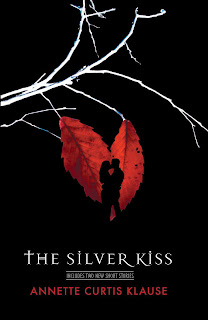Marjorie M. Liu made heads roll a few days ago in her post
regarding Roman Polanski. It's good to see such a prominent author speaking up.
Carolyn Jewel did, too. (Edit 10/8/09: Amanda Downum
has also chimed in.) For those unaware, Roman Polanski is a U.S. fugitive currently undergoing criminal court in Switzerland to be extradicted to the U.S. to face trial for his offenses.
Some people have even risen to Polanski's defense, neatly ignoring the fact that he drugged and raped a 13-year-old girl.
As someone relatively familiar with these issues, I'd like to address some of the language I've seen being used.
From
TulsaWorld:
"Roman Polanski lost the first round Tuesday in his battle to avoid extradition to the U.S. for having sex in 1977 with a 13-year-old girl."
An adult does not
have sex with a 13-year-old girl. Sexual assault laws vary across the U.S. regarding how many years can separate two minors for sex to be legal, but in every single state it is
illegal and considered to be no less than
rape for an adult to penetrate a 13-year-old girl. It is not sex. It is
rape. Referring to it as anything other than such is to demean the levity of the
assault.
I'd also like to note that, regardless of age, it is also illegal and considered rape if one or more of the parties involved is intoxicated because it is impossible for someone under the influence to grant consent. This is also standard in every state.
Polanski plied her with alcohol. Why there is even any discussion after this point, I don't know.
From Carolyn Jewel:
"I really thought we'd moved past the days when we blamed women for the violence committed against them. I really did. I didn't think anyone in America today could stand up and blame a 13 year old girl for the actions of a 43 year old man who gave her alcohol and drugs before he got around to having sex with her -- because, damn, she kept saying no!"
Good entry overall. However, in a nutshell: we as a society are no where NEAR over blaming women for the violence committed against them. Victim-blaming, slut-shaming, and rape apologism is on going, and it occurs among our peers, our workers, our friends, our family, our police, our government. In a world (and specifically, this country) that believes people get what's coming to them, the first question we ask is not, "Is there anything I can do to help you?" but instead, "What did you do to provoke him?" This is not the first case of a child molester, but it is a case that has been under public scrutiny because of the perpetrator's fame, the length since the rape, and his flight from the country.
Let me make this clear, folks: If the perpetrator had been anything other than famous, this uproar would be not be occurring.
There are
thousands of women, men, and children who have had acts of violence committed against them, many of whom do not have their perpetrator's fame to speak for them.
Thousands.
What's sickening that it's taken the rape of a
child by someone
famous for people to begin to realize that no, HELL no, things are not okay here. When the news of Chris Brown's assault and battery of Rihana manifested last Spring, people pointed fingers, tsked, told Chris Brown never to do such an awful thing again, and promptly dropped it. Over half of teens polled
blamed Rihanna. Only when it's so clear-cut as to include a child, and alcohol, and a desperate flight from the country does the media consider it sensational enough to cover it, for people to sit up and pay attention.
It doesn't matter how many times she said no, or if she said no at all. Consent is not granted in the absence of the no. Consent is not granted even if she says yes, but is still intoxicated or underage. Consent was not only NOT granted, but she was not ABLE to grant consent, period.
![]() cassiphone's periodic table of SF women:
cassiphone's periodic table of SF women:


